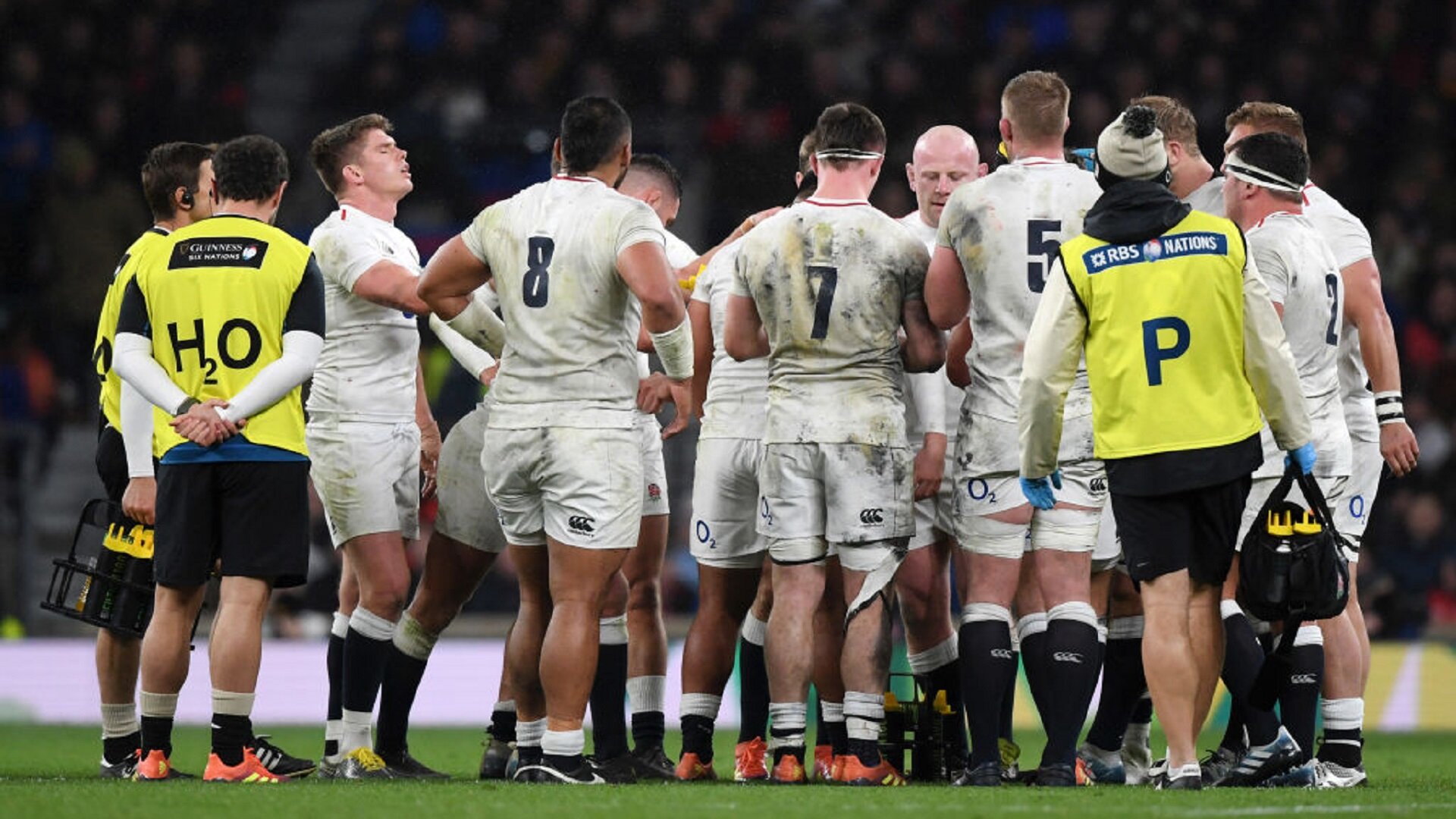Post-Six Nations - which 31-players make England's plane to Japan and the Rugby World Cup?

On balance, it was a productive Guinness Six Nations for England.
The second halves against both Wales and Scotland will be a concern, but overall England logged 320 impressive minutes of rugby across the course of the championship and head coach Eddie Jones will be even closer to finalising his squad for the upcoming Rugby World Cup.
Just four games remain for England now, before they face Tonga in their tournament opener in Sapporo in September. Those games will see them taken on Wales home and away, before hosting Ireland at Twickenham, and then finally welcoming Italy to Newcastle to round out their Rugby World Cup preparation.
We have taken a look at the potential 31-man squad that Jones could take to Japan below.
Back three – Joe Cokanasiga, Elliot Daly, Jonny May, Jack Nowell and Anthony Watson
Daly and May pick themselves at this point, given their incumbent status in Jones’ regular matchday XV, whilst Nowell has been consistently involved as either a starter or a replacement, and also boasts the versatility to cover at outside centre if needed.
Watson, if fit, would likely travel, with the Bath flier capable of playing on either wing or at full-back to a high standard. We have Cokanasiga joining him given the unique physical ability he brings to the mix and the standards he has shown so far in international rugby. Chris Ashton could crash the party, too, and although we have gone with a 18-13 split in favour of the forwards, if Jones opts for a 17-14 split, Ashton would be a strong candidate for the extra spot. Don’t rule out a Mike Brown recall, either.
Centres – Jonathan Joseph, Henry Slade, Ben Te’o and Manu Tuilagi
Slade and Tuilagi seem like certainties after the Six Nations and Te’o has always been a favourite of Jones, consistently selected whenever fit. Te’o’s inclusion also allows for England to go the power game that worked so well against Italy and is something they may well deploy against both Tonga and the United States.
We have gone for Joseph to accompany that trio because he offers something different to the power of Tuilagi and Te’o and the ball-handling of Slade, not to mention the fact he was involved in the larger England squad early in the Six Nations, despite still having very little rugby under his belt following his injury last year. Ollie Devoto, Piers Francis and Alex Lozowski are the others to keep an eye on, although none boast too much international experience or recent involvement in an England 23.
Half-backs – Owen Farrell, George Ford, Dan Robson and Ben Youngs
In all honesty, this is a guess on Robson’s inclusion. The Wasps scrum-half started the Six Nations as Youngs’ deputy, but his opportunities were few and far between and now another international window has passed with England knowing very little about their options behind Youngs.
Farrell, Ford and Youngs are all inked in and Slade is capable of covering at fly-half if required, allowing England a little more flexibility elsewhere in the squad. Danny Care could come out of the international wilderness to offer an option instead of Robson, whilst Ben Spencer is the other nine floating around the England squad. It seems as if Danny Cipriani‘s chances are getting slimmer by the week, too.
Front row – Dan Cole, Luke Cowan-Dickie, Ellis Genge, Jamie George, Dylan Hartley, Kyle Sinckler, Mako Vunipola and Harry Williams
The starting front row of Vunipola, George and Sinckler from the Six Nations are all certainties, whilst history shows that Jones has always taken three hookers to Rugby World Cups, paving the way for captain Hartley, if fit, and Cowan-Dickie to join that starting trio.
We have England taking three tightheads, with Cole and Williams coming into the mix, and just the two looseheads, thanks to Cowan-Dickie’s previous time at the position and ability to cover in training should a player pick up a minor knock. Genge gets the nod over Ben Moon in this scenario based on a fit Vunipola being able to start, but Jones could easily flip it and take three looseheads and just two tightheads, with Sinckler having proven particularly durable.
Second row – Maro Itoje, George Kruis, Joe Launchbury and Courtney Lawes
A nice and simple one, with these four locks having established themselves as England’s go-to options in the second row over the last three years. It’s hard to see any one of them not travelling for any reason other than injury, which could potentially prompt a call to Charlie Ewels or Nick Isiekwe.
Back row – Tom Curry, Nathan Hughes, Brad Shields, Sam Underhill, Billy Vunipola and Mark Wilson
The Six Nations starting trio of Wilson, Curry and Vunipola all feel firmly entrenched and as if their tickets have already been booked, whilst Hughes and Shields have consistently been around the England squad over the last year. Underhill has had his injury problems but when fit has starred for Jones’ side.
The back row selection could go a number of ways, though. The ability of Itoje and Lawes to be options on the blindside could see England opt to cut a back rower and pick an extra prop or wing, whilst Chris Robshaw brings experience and leadership to a team that many said were struggling for the latter in the Six Nations. Ben Earl has been on the bubble of the squad this season, too, and is one of the few players to be a genuine option at six, seven or eight, something which is valuable in the short turnarounds and limited squad sizes of the Rugby World Cup.
Watch: Jack Nowell reflects on England’s second-half meltdown against Scotland































